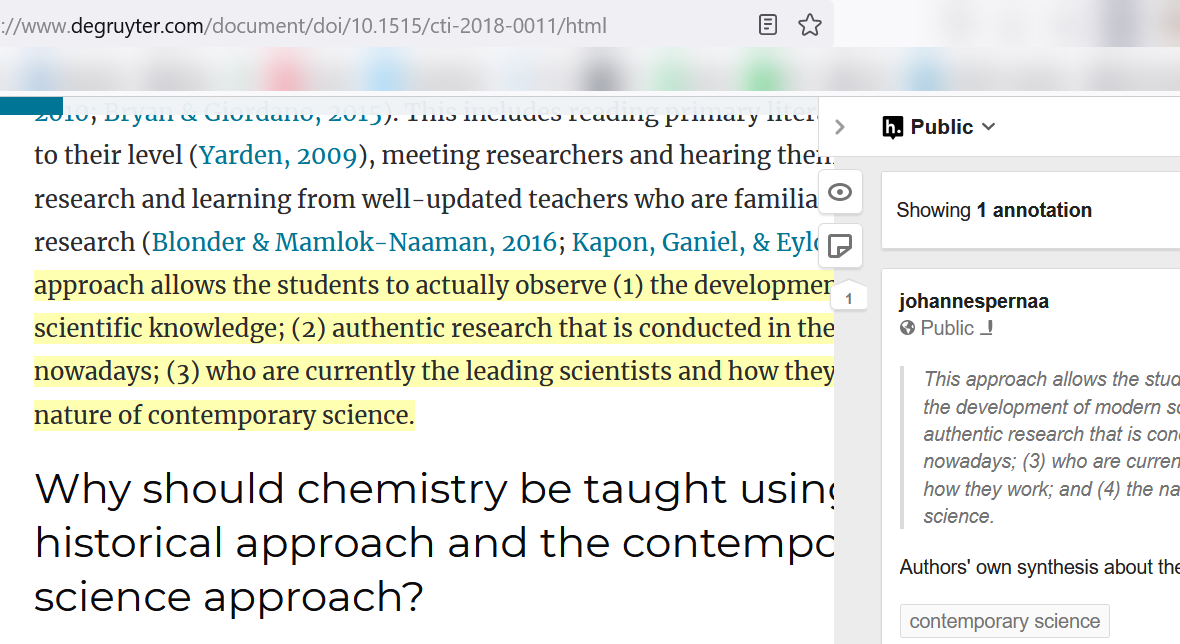HTML articles and Pocket/Hypothesis
Posted on March 31st, 2022
Scientific articles are usually delivered in 2 main formats: PDFs and HTML articles. Everybody knows how to operate with PDF articles. Some do it more efficient than others. My workflow with PDFs is to manage citations via Zotero and save relevant files Adobe Document Cloud (ADC). However, ADC is not for everyone. I am in the impression that it is a paid service. I use via my Adobe Creative Cloud subscription.
PDFs have their advantages, but HTML papers are many times much more sophisticated. At least with citation hoover effects effects and device compatibilities. I have been increasing my HTML article consumption, but I am struggling with an efficient workflow.
I have tried Pocket app for reading and managing the library, but Pocket can't work through payment walls. I confirmed this from their customer service (30.3.2022). As an academic my home institution (University of Helsinki) offers me passage through this wall, but Pocket is not integrated to same ecosystem.
My next test drive is with Hypothes.is. I can continue managing references via Zotero, which transfers me via DOI directly to HTML article. In the article I can work with Hypothesis highlights and annotates (see figure).
The solution looks quite promising for the user, but the challenge is that not all journals are capable to offer their content in HTML format. Fortunately, all established publishers can, and most of the chemistry education research is delivered by them.

A screenshot of Hypothesis in a desktop browser.
